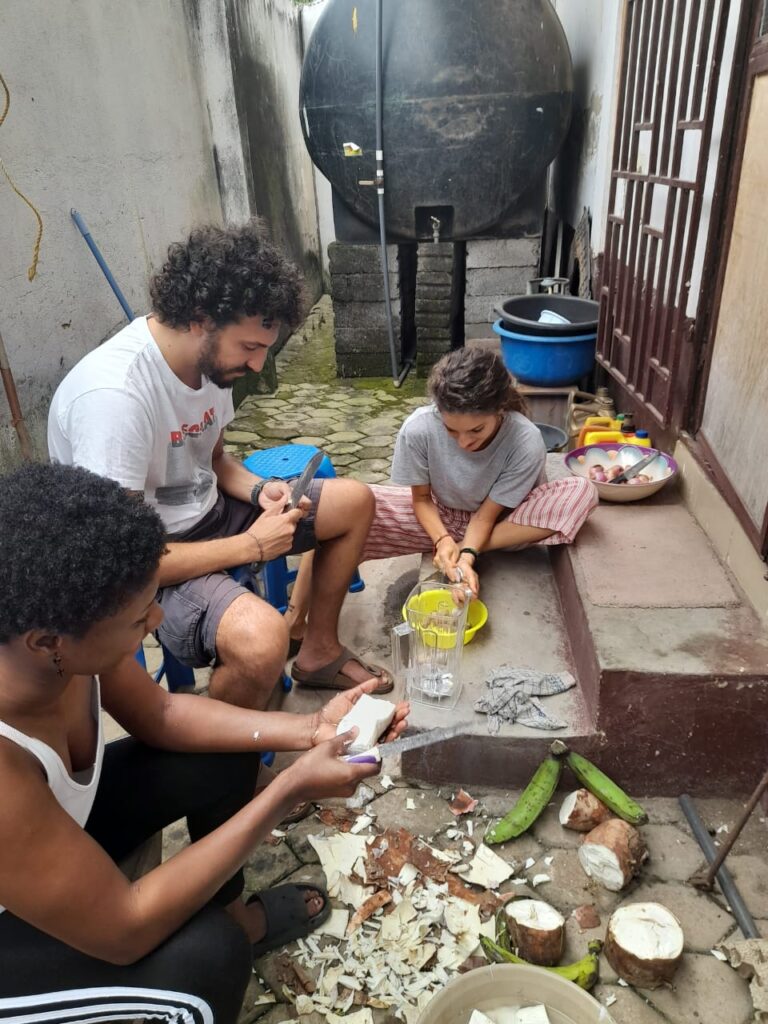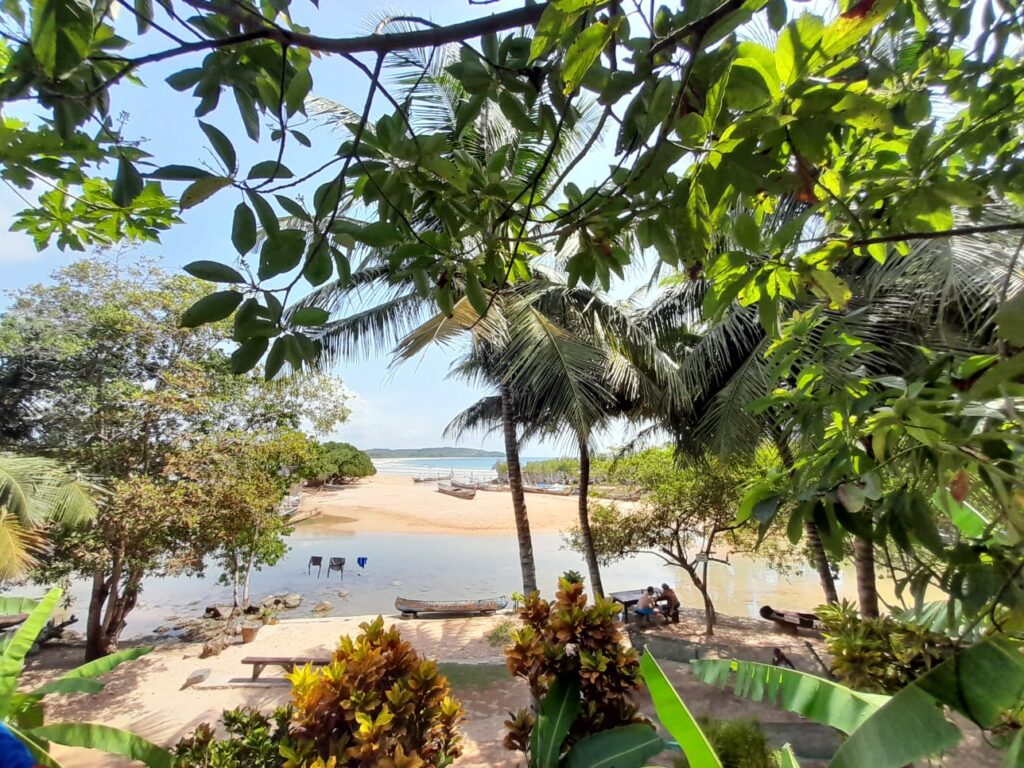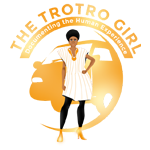Being a woman and white in Ghana
Ghanaians believe they are hospitable. We love to go the extra mile to make their guests comfortable and to have a memorable experience. From gifts to food, to compliments, to preferential treatment, we may often believe that we are offering them a memorable experience if not the best one of their lives. But have we ever paused to look at it from the perspective of our guest? Have we ever wondered or asked questions to ascertain the needs of the guest or how else they would have preferred that we relate with them? Today, we have the story of Sara Lorenzini, from Italy, to glean from.
About Sara
Sara Lorenzini is a researcher and PhD student in Forest Governance. She is an active person, engaged in commitment to environmental and gender issues. She works in organisations and communities through policy, strikes and advocacy. Sara is also a traveller and she loves having experiences for study, work, volunteering and industry. She loves to cook, especially for others.

Discovering new recipes, reading, working in nature, practising aerial dance and yoga are other interests. Now, she can add surfing, which she learnt in Ghana.
Her first trip outside of Italy was to Ethiopia at the age of 16. Ms Lorenzini has been to Kenya and Morocco. She had 3 Ghanaians in her class during her masters who told her Ghana was safe, fun and welcoming.
So, when she found a volunteering opportunity in Ghana, she did not hesitate to take it. She chose to spend 4 months of her life volunteering and discovering our country.
I still remember when they opened the door of the plane. I remember the smell of Ghana
Her stay in Ghana
Sara describes her stay in Ghana as amazing. She says she did not think she needed time to adapt or warm up to others. The fact that other volunteers arrived before her helped prepare the way for her. “Still, it feels so natural”.
“I still remember when they opened the door of the plane. I remember the smell of Ghana”. Coming from a small university town in the US, Ghana was so much different. She loved to see market women and hawkers dancing in the street whenever they heard loud music. “I have had a rich experience both personally, professionally and fun-wise”
Despite her enjoyment of this “amazing country” there have been some challenges as it is in every new environment.
I have had a rich experience both personally, professionally and fun-wise
For Sara, organisational timing was always an issue. “a meeting or event at 7am/pm is never at 7am/pm. People are hardly ever on time. Buses only move when full so you could sit for hours waiting. You just have to learn to take things as they come”.
Food was definitely one thing she struggled with. “As an Italian, I am used to variety. It was worse during the times I spent on the field. It was challenging because there was very little to choose from. My colleagues loved fufu so much and so for a lot of the time, we ate fufu”. As a vegetarian, there were not that many options. Yet, she liked waakye and would absolutely miss red-red and roasted plantain.
As a white woman
Also, although she felt safe unlike elsewhere, she was overwhelmed by comments from men on the street. Comments because she is a woman and more so, white. Some include, “give me your phone number”, “I like you”. “Whenever I refused, they made it look like it was because they are black. This way, they turned the whole situation into an issue of race”. Even uber and bolt drivers did the same. They would say, “You deserve to be treated well because you are a woman and especially because you are white. This was hard for me to digest”. She did not want to be reminded each day that she was white or simply different.
For Sara, this was not just overwhelming but frustrating. It made it difficult to make male friends because you know where it heads eventually. There always seemed to be some sexual twist to it. The few times she tried to give guys the benefit of the doubt, the results were the same. It was better with ladies.
Memories and recommendations
All in all, Sara loved her stay in Ghana and would recommend to people to visit certain places.

Busua beach because foreigners are well integrated with locals. Wli Waterfalls because it was so beautiful. Mole National Park because you get to see different animals and amazing stars. Then Cape Coast Castle, Elmina Castles and Shai Hills.
As she’s leaving, if there is one memory of Ghana she would carry with her. It would be the women hawking on the street with their trays on their heads and people dancing everywhere.
Take-aways from Sara’s story?
I think that like Sara, anybody in another culture or environment already knows they are different. They do not need a constant reminder that they are. We may not be doing that consciously. However, it may be time to consciously peel back the layers of labels we place on ourselves and others. This may help us be mindful of how we treat others, with these labels as our reference. People do not necessarily want to be treated differently. Yet, we may not know that our reception may invoke such feelings in them. The way forward may be to have a conversation so that both parties feel heard and understood.
It also reminds us of the need to critically consider how we treat others when they are white. Many of us have a certain mentality of ourselves as Ghanaians, even Africans. This mentality elevates the white person above the black person. This may not end in a day as it took years of slavery and colonial rule which led to black people imbibing such a notion about themselves. Yet, it must begin from somewhere.
Mate, bus stop!


Ghana is absolutely beautiful and welcoming
Tho despite the curious looks and unwanted gestures as Sara indicated, Kumasi is very safe for a white woman, especially in the CBD
The market woman will never allow her white visiting daughter, as they call every young lady, to be harassed. Ultimately, you can also never get lost. Those market women, they got the back of every white woman.
Their welcoming gestures include asking you how you are faring(if you’re able to respond in twi, you are already part of the family), they will also immediately call you by your Ghanaian name(which you might not even know of🌚) and ask you where you are from. Mind you, this is not a sitting-down conversation. You can be in a hurry and still be an Inlaw 😂
My mum is the tour guide of the year, 2018…so we really see this everyday
Thanks Amanda.
Yes, the majority of these women do lookout for young ladies in the market